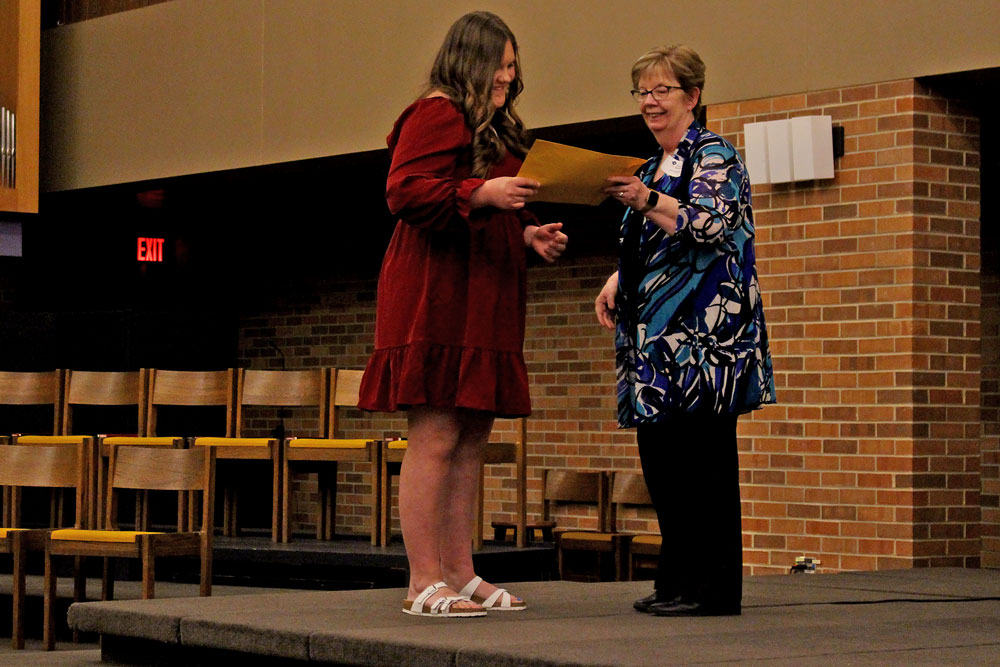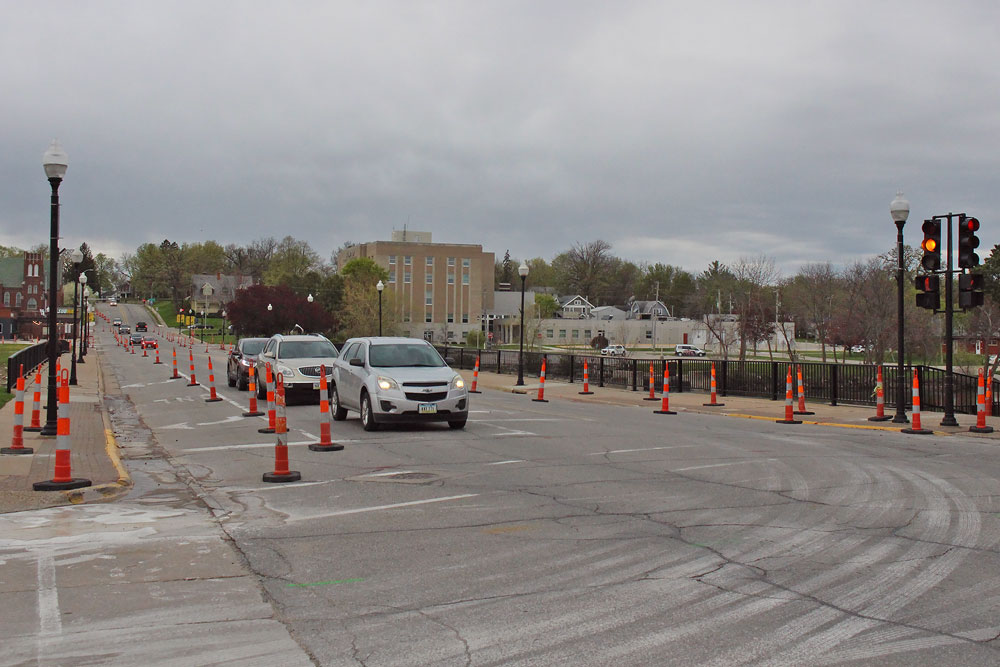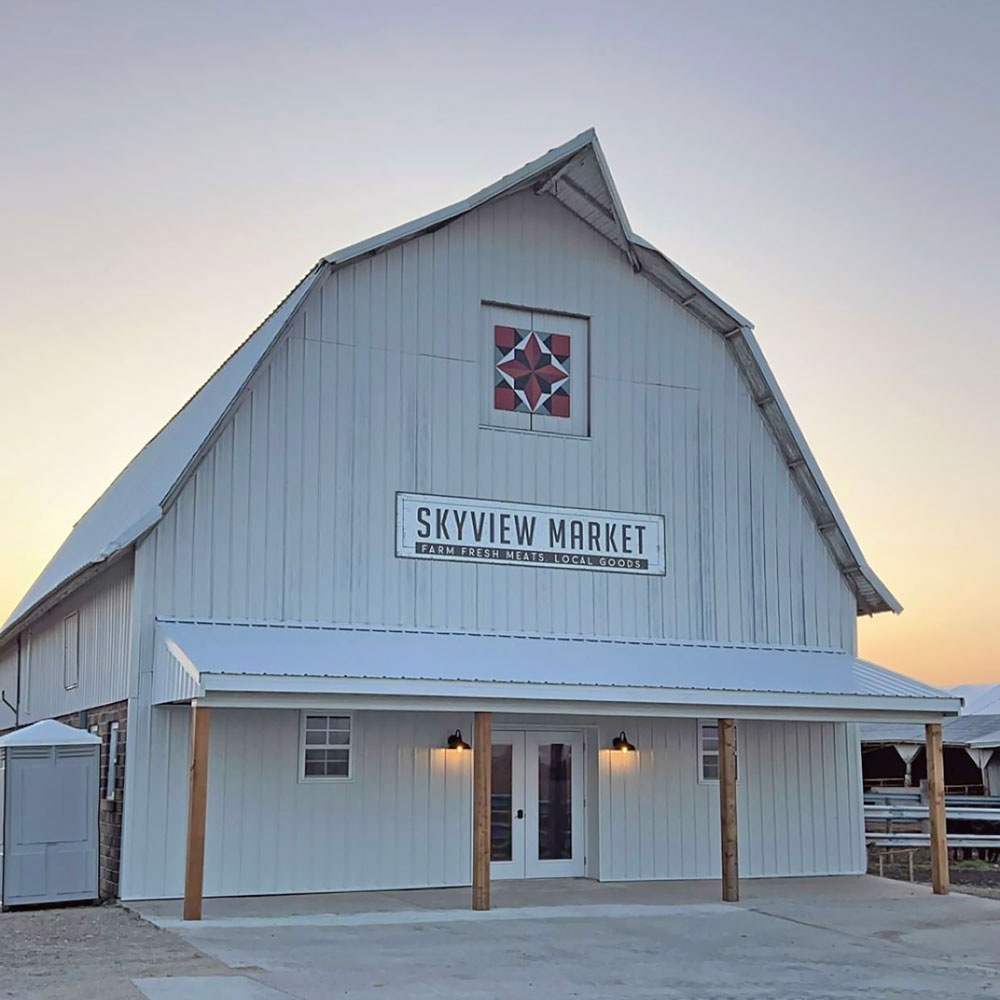Floyd County Zoning Commission examines proposed pipeline ordinance

By Bob Steenson, bsteenson@charlescitypress.com
Members of the Floyd County Zoning Commission, county Board of Adjustment and about 50 others spent more than two hours Tuesday evening discussing the pros and cons of a proposed zoning ordinance that would regulate where hazardous liquid pipelines could be constructed in the county.
Representatives of Summit Carbon Solutions and Navigator CO2 Ventures, the two pipelines proposing construction that would include Floyd County, said if the ordinance is approved and survives court challenges, it could mean that their projects would not be possible in the county.
But the attorney who helped craft the ordinance for Floyd County and similar ordinances for several other Iowa counties said the ordinance would allow the pipeline companies to apply for conditional use permits from the Board of Adjustment that would allow them to build their project, although they would need to change the proposed routes in many areas.
The ordinance would establish setback requirements for pipelines from cities, occupied residences, churches, schools, feedlots, water supplies and other locations, but it would be up to the Board of Adjustment to make exceptions and grant variances where reasonable, said attorney Tim Whipple of Ahlers & Cooney law firm of Des Moines.
The meeting was held at the Floyd County Fairgrounds Youth Enrichment Center, because of the expected size of the crowd.
The Zoning Commission took no action on the ordinance at the meeting, which was described as a workshop only.
At the end of the meeting, Zoning Commission Chair Dean Tjaden asked the other members of the commission to contact commission staff with their suggestions on what the next steps are, including whether more workshops are needed or if the commission members are ready to discuss making a recommendation to the county Board of Supervisors.
Regardless of what that recommendation is, the supervisors will have the final say on whether the ordinance is passed or not, and federal courts will likely be the final arbiter of whether the ordinance can take effect.
Several other counties that have passed similar zoning ordinances have been sued by the pipeline companies in federal court. The first suit is scheduled to go to trial in December.
The meeting began with representatives of Summit Carbon Solutions and Navigator CO2 Ventures explaining why they thought the proposed ordinance was a bad idea, and prohibited by existing law.
Kylie Lange, Iowa pipeline project manager for Summit Carbon Solutions, said federal law gives the job of regulating pipeline safety to the Pipeline and Hazardous Materials Safety Administration (PHMSA), and Iowa law gives the job of regulating where pipelines can be constructed and implementing controls to protect landowners to the Iowa Utilities Board.
Other state and federal agencies that control pipeline location and construction include the Army Corps of Engineers, Environmental Protection Agency, Department of Natural Resources, U.S. Fish and Wildlife, Iowa State Historic Preservation Office and others, she said, but county governments are not on that list.
“The proposed ordinance appears to be significantly aimed at safety issues and would impose additional local requirements on an activity that the state and federal regulatory bodies already govern and permit,” Lange said.
Comparing pipelines to other forms of transportation that have been suggested for carbon dioxide, Lange said that in the last 20 years railroads in Iowa have had an average of one fatality for every 22 miles of rail.
Carbon dioxide pipelines have had one injury for 5,200 miles of pipelines in the past 20 years, and no fatalities, she said. And motor vehicle transportation has a far worse safety record than trains.
“We understand the county’s questions and concerns, and representatives of Summit Carbon would be happy to meet with the representatives of the county to answer those questions and discuss the concerns. But we do not believe the ordinance is appropriate as a matter of policy, and more important, we know that it is in conflict with both state and federal law,” Lange said.
“In all practical aspects, this ordinance would prohibit Summit Carbon pipeline from going through the county, of which we have already acquired voluntary 85% (easements) of the pipeline route,” she said.
During his presentation, attorney Whipple went through aerial maps displayed on screens at the Youth Enrichment Center, showing the proposed pipelines’ routes.
“The proposed Summit main line pipeline crosses Floyd County from east to west, for a total of 25.33 miles. The pipeline crosses 25 county secondary roads, a county drainage district, two railroad crossings and both the Cedar and Winnebago rivers. The route also crosses four primary highways – Highway 18, 218, 14 and 147,” he said.
“The pipeline actually goes through the city limits of Charles City at one point, and comes within a half a mile of the city of Rockford,” Whipple said.
Whipple said the Navigator pipeline crosses 14 county secondary roads, one primary highway – Highway 14, one county drainage district and one railroad crossing.
It would also pass within half of a mile of the meeting’s current location – at the Floyd County Fairgrounds, he said.
As part of his presentation, Whipple read excerpts from letters to the Iowa Utilities Board from the Charles City Economic Development Corp., the Floyd County supervisors who were in office last year, and the Rudd-Rockford-Marble Rock School District, expressing concerns about the proposed Summit Carbon route.
He also told personal stories about people who would be affected by the pipelines.
“Gary and Sandra Marth live at 2137 March Avenue where the Summit pipeline passes within 200 feet of their home. Gary is blind and handicapped. He worries about how he will escape if the pipeline leaks or ruptures,” Whipple said.
“Josh and Caroline Marth live at 2215 March Avenue with their 5- and 6-year-old children. The Summit pipeline is only about 300 feet away from their residence. They worry when they go to sleep at night and wonder what will happen to their family if carbon dioxide gas escapes and flows over their home.”
“The proposed ordinance doesn’t prohibit pipelines. But it does reflect the supervisors’ goals about other types of land usage in the county,” Whipple said.
“We have a disagreement with both pipeline companies on behalf of other counties as to the roll that counties play in deciding how land is used in a county. I’m working with a number of counties to try to make sure their goals for land use are expressed,” he said.
All of the counties, including Floyd County, have said they don’t want to prevent the projects, Whipple said, but they want to have input on the routes they take.
“The best way for supervisors to say what that input is is to pass an ordinance, the proposed one, and identify priorities like fairs and schools and city limits and try to decide the best place to put the infrastructure,” he said.
Whipple said cities and counties deal every day with proposed industrial developments, which is what the pipelines are, and the way they do that is with zoning laws.
People who own land that the pipelines want to cross have the power to negotiate easements, he said, but where the pipelines pass close to but not through property, those people have no power.
“Zoning is the only way to protect someone who can’t negotiate directly with a pipeline company about the placement of the line,” Whipple said.
Whipple acknowledged that some of the counties that had passed similar zoning ordinances were already being sued in federal court by the pipeline projects, and said that litigation was a risk.
“I think it’s the role of the Zoning Commission to really dig in on the details of the ordinance and the permitting. … Give serious thoughts to the setbacks. I think that’s really what zoning commissions do with every zoning ordinance, and what you should do with this one. And then the supervisors, it’s their role to think about the county’s legal risk and liability.”
Tjaden asked Whipple about comments that the attorney had made at an Iowa State Association of Counties meeting in February where he had advised counties at the meeting that it might be prudent to wait to pass zoning ordinances until the results of the Shelby County and Story County lawsuits – the first to be filed – had been decided.
Whipple affirmed he had said that at that meeting, but said he would not talk about specific legal advice he had given to client counties, especially at a public meeting and one where the pipeline representatives were present.











Social Share